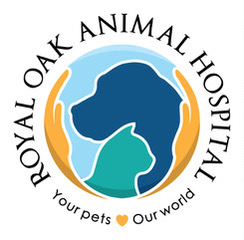Library
-
Swellings on or around the joints in reptiles can be an indication of uric acid deposits in the area. This condition is referred to as gout. Gout is often painful and may also affect internal organs. Treatment will require medications and sometimes surgery.
-
Do you have medications stored in the bathroom cabinet, kitchen drawer, and pantry shelf? Are random bottles haphazardly tossed into the “pharmacy”? Medications are meant to help us and our pets, but they can do more harm than good if stored or administered incorrectly. You can protect your family and pets by safely handling and disposing of medications.
-
Ophthalmic autologous serum is a blood-derived product used to treat corneal ulcers in animals. Ophthalmic autologous serum is part of the blood and is collected directly from the patient. It is in liquid form.
-
Silver sulfadiazine topical is an antimicrobial used to treat skin infections and burns in cats, dogs, and exotic pets. It is used off label in veterinary medicine. Silver sulfadiazine topical comes in a topical cream.
-
The family of Colubrid snakes comprises over 1,000 different species. Most individuals in this family of snakes, except the boomslang snake, are non-venomous. Colubrids generally make very good pets and come in a variety of colorful patterns.
-
While there are many species of pythons and boas, those noted here are among the easiest to keep. However, constrictor snakes, like the very large, reticulated python, can be dangerous in the hands of an inexperienced keeper, while others, such as the royal python, can be frustrating because of their long periods of not eating.
-
It is key for the health and safety of all snakes that proper housing be planned for the eventual adult size of your pet snake. For their enjoyment, hide boxes and branches are beneficial additions to the caging environment. Proper bedding, lighting and heat sources will differ depending on the species and size of your snake.
-
Sucralfate is given by mouth and is used off-label to treat ulcers and erosions in the mouth, esophagus, stomach, and upper small intestine. Give as directed. Side effects are uncommon but may include constipation. Do not use in pets that are allergic to this medication. If a negative reaction occurs, please call your veterinarian.
-
Sulfadiazine/trimethoprim is given by mouth in the form of a liquid suspension or is given by injection in the hospital. It is commonly used to treat bacterial and parasitic infections, sometimes off label, in dogs, cats, small mammals and other exotics. Common side effects include a decreased appetite, vomiting, and diarrhea, although more serious side effects are possible, such as dry eye, or liver, blood, or urinary problems. Do not use in pets that have severe liver damage, blood cell problems, dehydration, or sulfa allergies. If a negative reaction occurs, please call your veterinary office.
-
Sulfadimethoxine is an antimicrobial given by mouth in the form of a tablet or liquid suspension, used primarily to treat coccidiosis. Its use for treating small mammals and reptiles is off label. Common side effects include vomiting, diarrhea, and decreased appetite. This medication should not be used in pets that are allergic to it, pregnant, lactating, or have severe liver or kidney dysfunction. If a negative reaction occurs, call your veterinary office.


